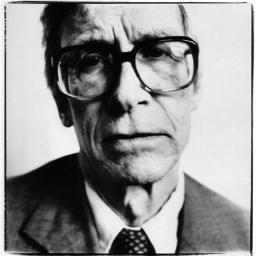Over at Demos Matt Bruenig has brought up some interesting charges against libertarians and popular pro-free market arguments that require some thinking about. While it can be easy to spout natural rights and the non-aggression principle in defense of laissez-faire markets, the foundational ideological justifications for property rights are, sometimes, overlooked or ignored by some of its most ardent supporters. Matt’s arguments, while deep and worthy of serious consideration, fail to discredit free markets and its crucial underpinning, private property.
The beginning of Bruenig’s argument harkens back to Marx and some of the philosophical communist critiques of capitalism. He puts forth two situations that he believes libertarians incorrectly view as different. He argues,
“Imagine I am looking to find housing to live in. I am presented, in the status quo, with the following choices:
- Pay a landlord rent to live in some building.
- Be homeless.”
He goes on to explain a potential third option.
“But wait a minute, these two options aren’t the only conceptually possible options. There could be this third option: just move into a building and pay nothing to the landlord… Through its construction of property law, the state has declared that landlords may call it on the phone and have it violently remove me from the building if I chose option three. That is, the state has–through violent, physical coercion–restricted the options that are available to me. It is only due to this coercion that I choose option one and pay landlords anything. In fact, functionally speaking, I pay landlords to get them to waive their state-granted right to violently restrict me from buildings.”
Bruenig is saying that what are usually thought of as voluntary economic transactions, are actually just as coercive as government commands, because the institution of property is, in itself, coercive. He continues by presenting the second situation,
“Now for example two. Imagine I am thinking of getting a job. I have the following options in the status quo:
- Get a job and pay income taxes on the income from that job.
- Do not get a job.
At minimum, paying income tax is just as voluntary as me paying rent to a landlord. That is, I have chosen that option among all of the available options because it is the best one. But of course, the rub is that this is not a complete set of possible options. There is a third option here that the state forecloses: Get a job and do not pay income taxes. That third option is the one libertarians would choose, but the state–through violent, physical coercion–has prevented them from having this option.”
Seemingly, Bruenig actually agrees with the common libertarian position that the state has coercively prevented this third option, which we find preferable. However he believes libertarians aren’t consistent in their beliefs because we don’t view the first situation as coercion. Drawing from late economist, Robert Hale, he argues “coercion occurs when there are “background constraints on the universe of socially available choices from which an individual might ‘freely’ choose.” In a world of scarcity, all economic rules–including rules that create private property ownership, contract laws, and so on–impose background constraints on the universe of choices individuals can make.”
I believe, the crucial flaw in this argument is actually stated right in the above text. When Bruenig acknowledges that scarcity is what imposes constraints on peoples’ choices, he invalidates his entire argument. Humans are not capable of flying or breathing under water, however this doesn’t mean they lack free will. We can choose to do whatever we want, but we are not capable of doing whatever we want. This is a fact of nature and since nature, and any inanimate object for that matter, cannot coerce, being limited by our own physical capabilities and laws of the universe cannot be considered coercion.
According to the Merriam-Webster dictionary, coercion is “to make (someone) do something by using force or threats.” Scarcity, being a fact of nature, does not fall under this definition. On the other hand, government rules which are enforced by people using the threat of violence clearly does. While it is possible to take advantage of people in difficult circumstances in a free market, is never coercion like when the government forces people to do something.
Furthermore, Bruenig’s analysis of property rights as merely an artificial state construction is at odds with contemporary natural right philosophers, such as Rothbard, Locke, and Nozick, yet he doesn’t provide a philosophical argument against natural rights. I’m not saying he should have; it was his article after all. But the point remains that there is no reason to think property rights are artificial or created by the state. Locke’s theory of homesteading and property rights is far more convincing than Bruenig’s empty assertion.
If people have ownership in themselves and are morally responsible for their actions, it follows that they can lay just claims on external objects that they have either entirely created, or were simply the first to find. This means property laws are actually safeguards against natural rights violations (i.e. coercion) and the complete opposite of what Bruenig accuses them to be.
Despite bringing to attention worthy and often ignored arguments against private property libertarianism, Bruenig’s argument is based on a false view of coercion which confuses universal, physical limitations with human imposed rules. In addition, he ignores some of the most influential natural rights theorists who argue people can justly own property, which invalidates his entire point.

